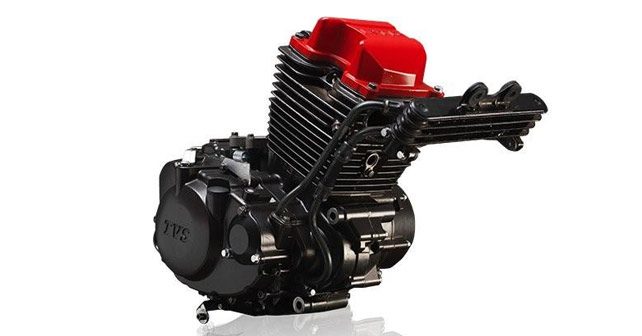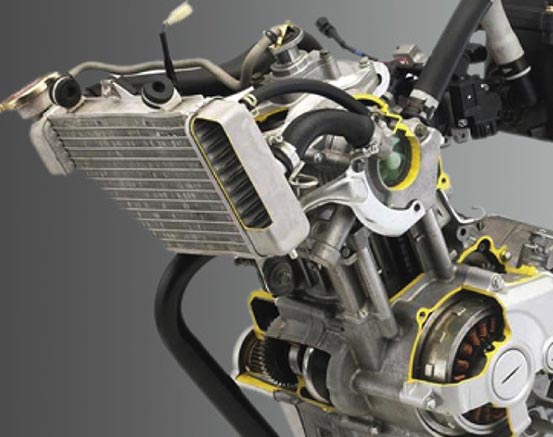These both are cooling mechanisms. One uses oil to cool whereas other uses some kind of water-based coolant. What are advantages and disadvantages of both in both technical and ownership point of view? What to choose while buying?
-
1cooling for what? Oil cooling is much more stable than water-glycol systems but costs more.– MoabCommented Aug 3, 2016 at 20:09
-
For a motorcycle engine. And also for a car, if I were ever offered to choose between the two.– BraveNinjaCommented Aug 3, 2016 at 20:12
-
I mean the coolant generally used in cars (the green color liquid) vs oil cooling.– BraveNinjaCommented Aug 3, 2016 at 20:37
-
1This question doesn't make much sense to me. Automotive engines use oil, whether it's "liquid" cooled or not. Cooling is just one of the jobs of oil. Some of the other things it does is reduce friction, lubricate, and clean. I've not heard of oil being used in place of a water-antifreeze based coolant.– Pᴀᴜʟsᴛᴇʀ2 ♦Commented Aug 3, 2016 at 21:25
-
2The implication is water cooled vs. oil cooled IMO. It seems to me there is a very clear distinction.– DucatiKillerCommented Aug 3, 2016 at 21:35
2 Answers
Oil Cooled and Water Cooled are terms used by Manufacturer's to differentiate the slight difference between the cooling systems.
Note that this is specific to only motorcycles as almost all of the cars and larger automobiles have moved to Water cooling(Explained below)
Oil cooling:
Technically , An oil cooled engine is predominantly air cooled with oil cooling assistance, the majority of the heat transfer is through the fins on the cylinder block.
Oil Cooling system is generally used for small capacity motorcycles where the engine oil is circulated via an oil pump into a tiny radiator with a fan and back to the sump.
Above is an example of a 200CC oil cooled engine.Notice the two tiny tubes connected to a small strip of radiator with a tiny fan at the top.
Water Cooling:
Now this is the most familiar version of engine cooling technology where a mixture of coolant solution is run through the engine on to a Radiator and back to the reservoir. Almost all cars and modern high capacity motorcycles use this technology as this dissipates heat MUCH more efficiently.
Above is a Water cooled engine where you can see there are two noticeable differences , NO Fins on the cylinder head and a Much Bigger Radiator with massive pipes connecting to the cylinder block.
Advantages and Disadvantages:
The only instance where a manufacturer will use a Oil/Air cooled tech is:
- To cut down Manufacturing and selling cost of the motorcycle while providing noticeable cooling since motorcycles under 200 CC are generally commuter motorcycles with relatively low compression ratio thus not requiring bespoke Water cooling because they hardly get hot enough to cause damage to engine.They don't even have temp gauges
- Low maintenance/Rugged Engine since the oil/air cooled engine requires almost no separate maintenance like regulating coolant level etc and smaller radiator means lesser worrying about debris damaging the radiator.Just change engine oil and oil filter and you are basically good to go.
What to choose between the two?
I don't think there will be an option to choose from a Water cooled engine and an Oil/Air cooled option for the same engine.(I am not 100% sure but that just doesn't make sense).
- Oil/Air cooled engines are low cost to buy and maintaine.
- Almost 0 special maintenance required.
- water cooling gives you better hear transfer and keeps engine in peak performance all the time but require separate maintenance.
Conclusion:
Oil cooling is a term used by manufactures for Oil Assisted Air cooled engines, provides inferior cooling effect but is more than enough for small capacity engines.
-
Couldn't you also say that technically a water-cooled engine is predominantly air cooled with water assistance? It's the air through the radiator that is the ultimate destination for the heat. The coolant just transfers the heat from the engine to the radiator. The weirdly named "radiator" relies more on convection than radiation.– Jason CCommented Aug 4, 2016 at 14:45
-
The entire topic is a mismatch between technical terms and marketing terms. Firstly Air cooled engine also has engine oil which obviously is used to maintain engine temperature. Oil cooled as rightly said by @Shobin assists in cooling using the radiator. I think Water cooled can be also categorized as air cooled with water assitance (technically). Commented Aug 4, 2016 at 15:04
I am assuming that by cooling you are referring as to which Engine cooling systems are better in particular scenarios...
Oil-cooled: Traditional Oil-cooled engines are most commonly found in passenger commuter motorcycles which are usually anywhere between 50cc to 500cc (some sophisticated models have liquid cooled engines as well). The system uses the already present engine oil as a source for cooling the engine. It is generally supported by radiator-type fins (which one can see attached to such engines, typically on a motorcycle)
Liquid-cooling: Most common on passenger cars and motorcycles as well. Include a separate coolant as the basis to reduce engine temperature via a series of Radiator assembly components - grille, pipes, fins and majorly a rotating electric fan.
Uses of one over another:
A1. Oil-cooled engines have Compact design, since there is no requirement of additional components like radiator-fan assemblies in liquid cooled ones.
A2. Oil having a higher boiling point, can fight against high temperature evaporation as opposed to coolant (or water cooling the engine in adverse times).
A3. Oil doesn't cause rust and acts as an insulator against electric sparks or something.
A4. Traditionally, oil and air-cooling were preferred in extreme applications like military where there is a possibility of damage to liquid-cooling system components.
B1. Liquid-cooling is preferred specially for efficiency since liquids work better than air for heat exchange as per physics.
B2. Works favorably better for high performance and race-oriented cars.
B3. Oil may degrade and leave residues overtime and relying only on one source of something is disadvantageous as opposed to having dedicated cooling systems.
B4. Finally, oil has chances of lighting up if spillage or leakage occurs due to the hot engine temperature and water is readily available in the event your coolant wears/leaks off, etc.
-
-
1Thanks @DucatiKiller... it is due to folks like you that the social community thrives...– Jay VyasCommented Aug 3, 2016 at 21:46
-
Thanks @jayvyas we have a pretty good chat room on the site as well. Stop by and say hey sometime. chat.stackexchange.com/rooms/340/the-pitstop Commented Aug 3, 2016 at 22:11
-
Welcome @JayVyas to the community. Well, do you mean that liquid cooling means we have predominantly water along with some chemicals? Commented Aug 3, 2016 at 22:18
-
@user3065750 Yes, most common engine coolants, including the ones we use in modern cars, use a mixture of water with an agent we know as Antifreeze (predominantly ethylene glycol, historically methanol). This article on wikipedia will shed light on the contents of Antifreeze traditionally and in recent times - en.wikipedia.org/wiki/Antifreeze– Jay VyasCommented Aug 3, 2016 at 23:02


